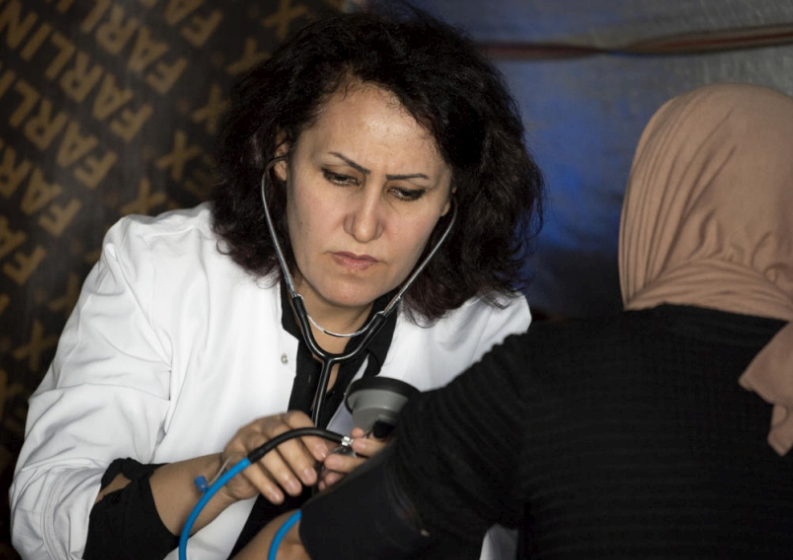Afghanistan: a year after the Taliban’s takeover, Afghan women’s rights are under attack from all sides
The RAJA-Danièle Marcovici Foundation has awarded a grant of 15,000 euros to the non-profit organization FEMAID as part of its emergency fund. In Afghanistan, since the Taliban took power on August 15, 2021, women's rights have regressed significantly and girls' education is now banned beyond primary school. FEMAID is committed to the education of Afghan girls aged 11 to 18. Through this project, more than 250 girls will continue to study, 18 teachers will receive a salary and be able to support their families, and up to 800 people will take online courses. We spoke with Carol Mann, president of FEMAID, to know more about the situation there and the project.
15 August 2022
- Can you describe the situation in Afghanistan, one year after the Taliban’s takeover?
The already precarious economic and social situation has totally collapsed, especially since the government has not been recognized and international trade is now almost impossible. Humanitarian aid, on which most of the population was already relying, has been almost entirely stopped, with the exception of emergency food aid, which is largely insufficient. Out of a population of 41 million, 97% of whom live below the poverty line, more than half are facing famine, worsened by the drought and the consequences of the war in Ukraine
- How has the situation of women evolved over the past year?
The few young women who worked even in the most modest way in the administration have lost their jobs, as have shopkeepers and teachers. Extended families (an average of 5 children per household and elderly parents at home) live in total poverty, leading them to sell their daughters for dowries in increasingly early forced marriages. The prohibition of female mobility and the impossibility to access basic health care or even water are causing a drastic increase in maternal and infant mortality. Education beyond primary school has been banned for girls, who lose all hope of a future.
- We have seen many images and videos of women demonstrating in Afghanistan against the government and for their rights. Can you tell us more about these demonstrations and the risks taken by that women who are part of them?
With the arrival of the Taliban, we saw women protesting in the cities. However, a very brutal police force is cracking down. The ban on leaving the home without a burqa or accredited male escort has led to numerous reprisals against these urbanized, middle-class, educated women. They continue to protest and document oppression through social media – when possible. But these women represent only a small minority who otherwise seek every possible means to leave the country, exacerbating the brain drain that has been active for the past year.
- Can you tell us more about your organization and describe the project funded by the Foundation? What are its objectives?
FEMAID has been working in war zones for 30 years with the goal of helping girls between the ages of 11 and 18 to continue their education through clandestine classes with teachers who have lost their jobs and who are paid directly. The demand is enormous in the country. In addition, we are setting up classes that can be taken over internet with refugee teachers here or online.
- How can we act from France for Afghan women?
In France, we must always remember that the cause of Afghan women is also ours. Even if the country may seem far away, Afghan youth have the same aspirations as Westerners, and Internet has created an awareness of belonging to a globalized society and culture. Moreover, the decline in women’s rights concerning their reproductive rights in Poland and in the United States is a symptom that the worst is never far away.
- In your opinion, how should France and the international community act to support women’s rights in Afghanistan?
The international community must not recognize the Taliban government in any way, but must continue to provide food, health and educational assistance. Nevertheless, means must be put in place. It can be done through internet or other means, to allow girls to continue their education so that this entire generation is not lost. It would also prevent the country to experience a criminal backlash so sinister for the future of the entire region, and the planet.


